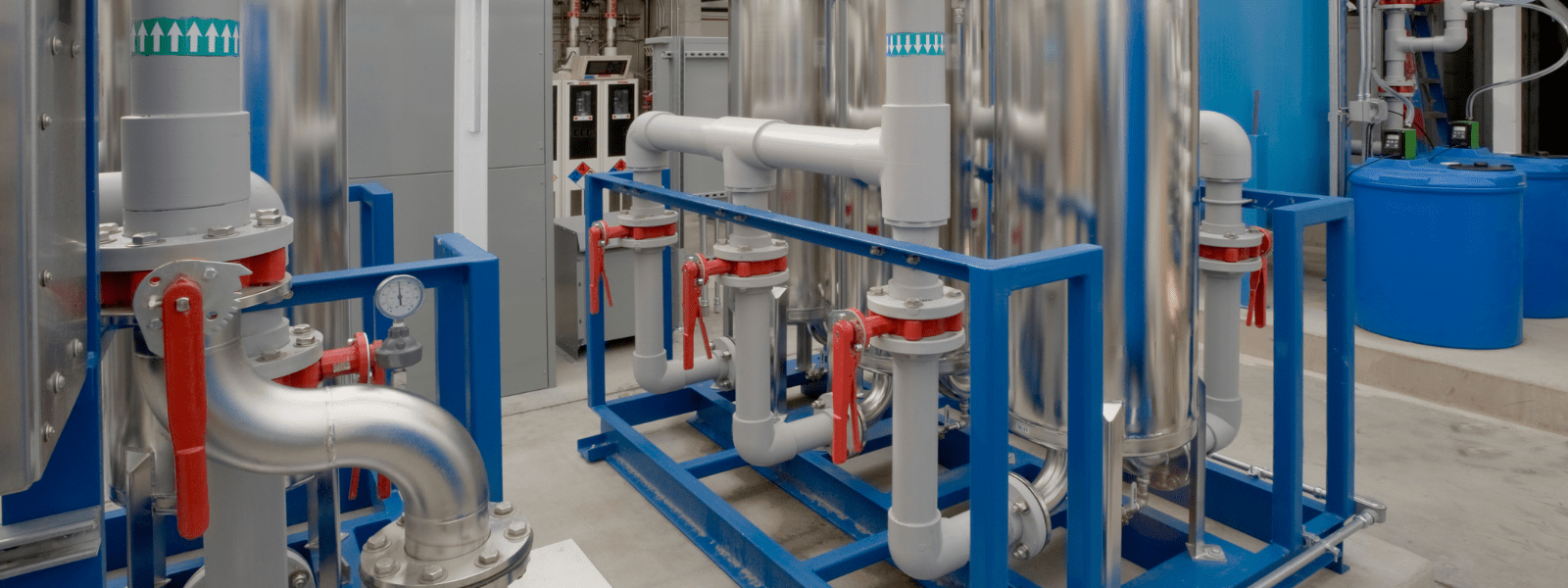Cooling water systems are often dependent on large quantities of water, often obtained from natural sources. This means that all sorts of microorganisms may be found and can build up to cause harmful biofouling. This can have drastic effects on the flow of water, and decrease the efficiency of cooling by insulating the structures intended to spread heat to the water.
One of the most effective methods of preventing the buildup of biological material is using cooling water biocides.
Types of Biocide
Biocides can be organized into two categories: oxidating and non-oxidating. The former uses the destructive phenomena of oxidation, where electronegative atoms steal electrons from the outer layers of biological buildup. This destroys the outer cell layers, killing the organisms.
Some examples of this kind of biocide include:
- Chlorine
- Bromine
- Iodine
- Ammonium
Non-oxidizing biocides work through other more specific methods, though usually by inhibiting the reproduction of the microorganisms they are intended to target. A few examples would be:
- Bronopol
- Carbamates
- Glutaraldehyde
Because these chemicals work differently than the oxidizing additives, they are often used conjointly to tackle a biological problem or to prevent buildup from occurring.
How Biocide Is Administered
There are several methods for administering biocides, which mainly depend on the scale of the operation, and the type of biocide being introduced to the system. Sometimes additives are added in a method known as shot dosing. This is when chemicals are dumped into the most turbulent area of water flow in a large quantity manually, as prescribed by a schedule. This is by far the most cost-effective method because it does not require the installation of any additional equipment.
However, a more nuanced method is to use a pump to administer continuous dosing. Typically, the chemicals are pumped into the system based on a timer, or on a sensor. Sensor systems may be programmed to measure the changing concentration of the chemical in the water or to measure pH, redox, and temperature levels to make specialized doses to best meet the conditions of the water.
Still Curious About Cooling Water Biocide?
Biocides provide a useful method of cleaning and keeping clean the water used for cooling systems. To make sure your water system is the healthiest it can be, please fill out a contact form to let Ecolink’s experts help you on your journey!















